Proximate cause in insurance Idea
Home » Trend » Proximate cause in insurance IdeaYour Proximate cause in insurance images are available in this site. Proximate cause in insurance are a topic that is being searched for and liked by netizens today. You can Download the Proximate cause in insurance files here. Download all royalty-free images.
If you’re searching for proximate cause in insurance pictures information related to the proximate cause in insurance topic, you have pay a visit to the ideal site. Our site always gives you hints for refferencing the maximum quality video and image content, please kindly surf and locate more enlightening video content and graphics that fit your interests.
Proximate Cause In Insurance. 8.1 proximate cause definition proximate cause was defined in the. In washington, a judicial doctrine called the “efficient proximate cause” rule may apply and affect insurance coverage when multiple events combine to cause a loss. The proximate cause itself may not do any direct damage. The proximate cause needs to be the first cause or the last, but it is defined as the cause that is most active in bringing forth a result.
 What is Principle of Causa Proxima? Meaning and Examples From mymbaguide.com
What is Principle of Causa Proxima? Meaning and Examples From mymbaguide.com
It is an insured peril or not. Norwich union fire insurance society, 1918). The doctrine of proximate cause is one of the six principles of insurance. In washington, a judicial doctrine called the “efficient proximate cause” rule may apply and affect insurance coverage when multiple events combine to cause a loss. For an act or event to be considered a proximate cause, it does not necessarily have to directly precede a loss or begin a chain of occurrences leading to the same. For example, under a standard fire insurance policy, where the insured perils are fire and lightning, damage must be directly.
It looks for is the reason behind the loss;
The doctrine is considered “friendly” to insureds because it sometimes creates coverage for a loss caused in part by an excluded peril, where that excluded cause of loss was. It deals with finding out what is the closest/first cause of the loss. Proximate cause is concerned with how the actual loss or damage happened to the insured party and whether it resulted from an insured peril. Proximate cause in marine insurance (iii) ordinary wear and tear, ordinary leakage and breakage inherent vice or nature of the subject matter insured, or any loss proximately caused by rates or vermin or any injury to machinery not proximately caused by maritime perils. It is important that courts establish proximate cause in personal injury cases because not everyone nor everything that causes an injury can be held legally liable. The proximate cause is essentially that initial event that triggered the claim and need not be the event that immediately preceded the loss.
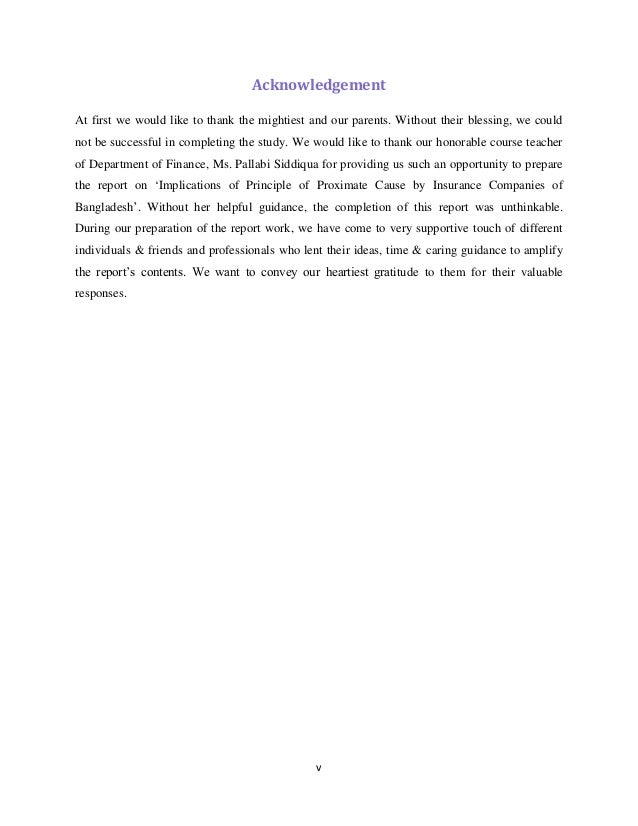 Source: slideshare.net
Source: slideshare.net
Proximate cause refers to the first event, or first peril, in a series of events that cause damage in an insurance claim. Usually, the first and last events can be easily indentified but it is any intermediate events and causes, which happen, that may be more tricky to determine. The concept of proximate cause is used both in. Accordingly the loss was held to be proximately caused by peril of the sea, covered. Proximate cause is concerned with how the actual loss or damage happened to the insured party and whether it resulted from an insured peril.
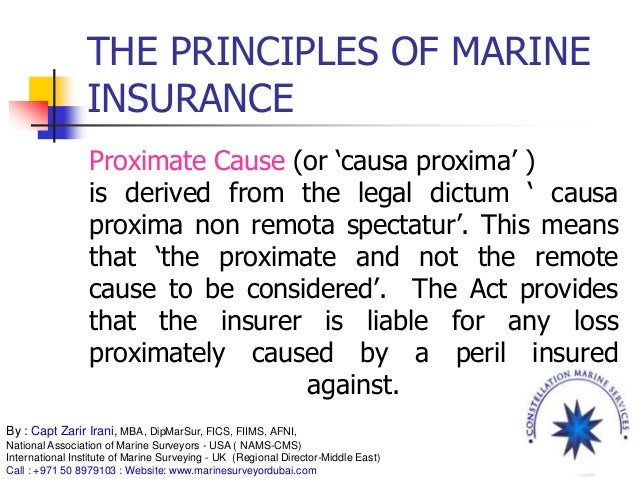 Source: slideshare.net
Source: slideshare.net
The definition of the “cause” was under test in many cases and was mentioned clearly in the marine insurance act 1906 in its section 55. “no attempt has been made to work out any philosophical theory of cause and effect and. The principle, proximate cause identifies for insurance purposes, which event is the probable cause of a particular event, leading to a loss and whether this event is insured. Proximate cause principle of insurance. It was held that the proximate cause of sinking of the ship was torpedo (leyland shipping co.
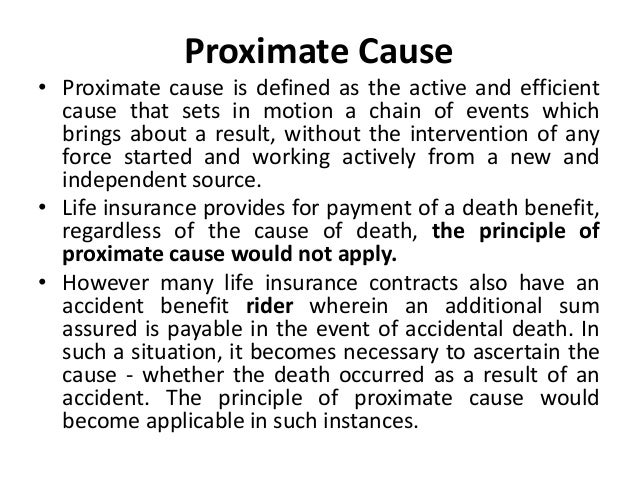 Source: slideshare.net
Source: slideshare.net
A german appeal court determined, in a marine claim, that the proximate cause of a vessel’s grounding and ultimate sinking after its main engine cut out was bad weather rather than an engine problem. Dari 2 (dua) pengertian proximate cause diatas maka jelas bahwa prinsip ini digunakan untuk mengukur atau. The definition from pawsey v scottish union & national insurance company (1908) provides a clear understanding of this principal and in following this principal it is possible to see how a loss might. In washington, a judicial doctrine called the “efficient proximate cause” rule may apply and affect insurance coverage when multiple events combine to cause a loss. Proximate cause means the active efficient cause that sets in motion a train of events which brings about a result, without intervention of any force started and working actively from a new and independent source.
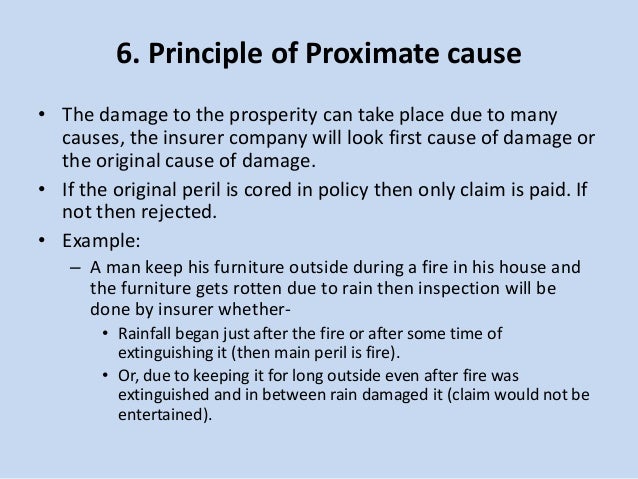 Source: slideshare.net
Source: slideshare.net
The proximate cause itself may not do any direct damage. The definition from pawsey v scottish union & national insurance company (1908) provides a clear understanding of this principal and in following this principal it is possible to see how a loss might. Norwich union fire insurance society, 1918). The doctrine of proximate cause is one of the six principles of insurance. Therefore, it is a highly relevant principle in the insurance industry.
 Source: mymbaguide.com
Source: mymbaguide.com
This section provides a definition of proximate cause and explains how it should be determined in practice. Therefore, it is a highly relevant principle in the insurance industry. Proximate cause is an important insurance principle which may be the deciding factor whether a loss is covered or not, and hence determining whether the person holding the insurance policy (the insured) would be successful in his claim. Proximate cause refers to a direct cause of loss, without which the loss would not occur; The proximate cause is essentially that initial event that triggered the claim and need not be the event that immediately preceded the loss.
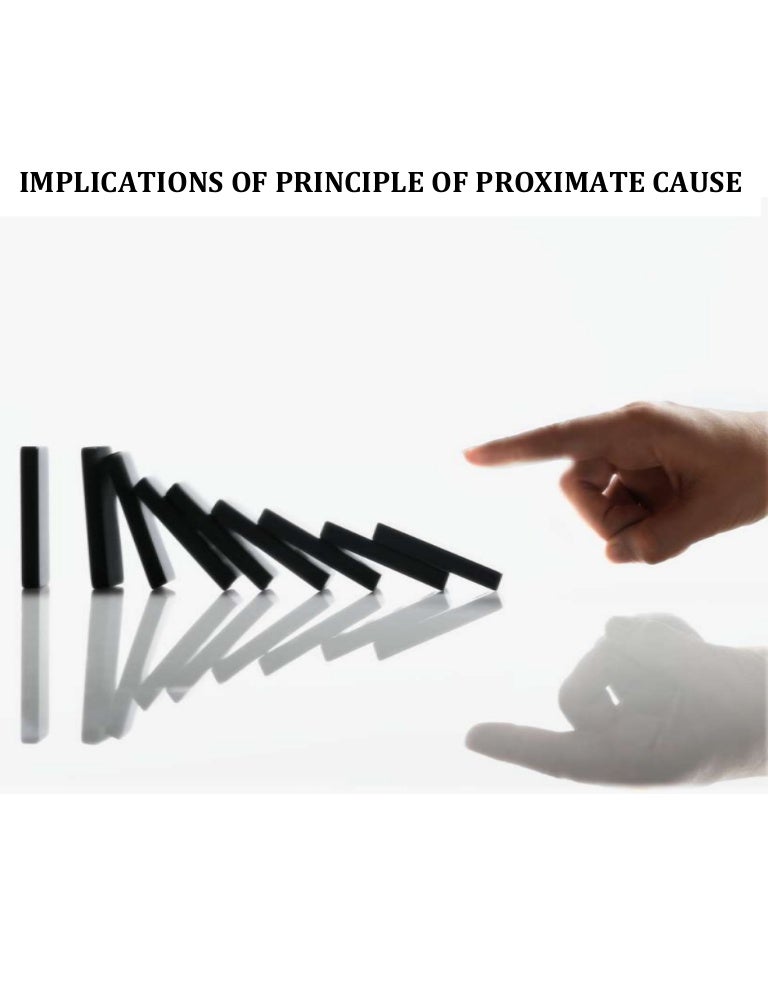 Source: slideshare.net
Source: slideshare.net
Proximate cause is concerned with how the actual loss or damage happened to the insured party and whether it resulted from an insured peril. The insurance policy may cover the proximate cause, but not the event that actually causes the damage, so the policy holder will not be reimbursed for his claim. It was held that the proximate cause of sinking of the ship was torpedo (leyland shipping co. Proximate cause is an important insurance principle which may be the deciding factor whether a loss is covered or not, and hence determining whether the person holding the insurance policy (the insured) would be successful in his claim. When the liability of the insurer is determined, the proximate cause is considered first.
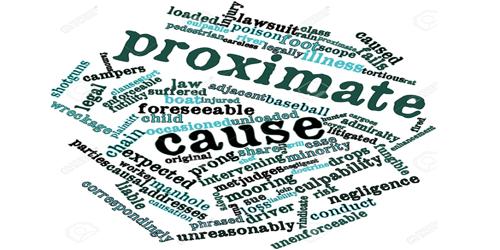 Source: qsstudy.com
Source: qsstudy.com
Proximate cause adalah suatu penyebab aktif, efisien yang menimbulkan suatu rantaian kejadian dan suatu akibat, tanpa adanya intervensi suatu kekuatan yang mulai dan secara aktif dari sumber yang baru dan independent (berdiri sendiri). The concept of proximate cause is used both in. This principle states that the closest cause for any particular loss will be considered when it comes to making an insurance claim payment. 8.1 proximate cause definition proximate cause was defined in the. It deals with finding out what is the closest/first cause of the loss.
 Source: insurepronews.blogspot.com
Source: insurepronews.blogspot.com
Although, cyclone was nearer to sinking in time, nevertheless, torpedo was the active efficient cause, because the ship was so hard hit by torpedo that it would have definitely sunk. Proximate cause is a key principle of insurance and is concerned with how the loss or damage actually occurred and whether it is indeed as a result of an insured peril. A german appeal court determined, in a marine claim, that the proximate cause of a vessel’s grounding and ultimate sinking after its main engine cut out was bad weather rather than an engine problem. Courts employ a set of proximate cause rules to resolve causation disputes when a property policy states that it covers or excludes losses. Proximate cause adalah suatu penyebab aktif, efisien yang menimbulkan suatu rantaian kejadian dan suatu akibat, tanpa adanya intervensi suatu kekuatan yang mulai dan secara aktif dari sumber yang baru dan independent (berdiri sendiri).

The doctrine is considered “friendly” to insureds because it sometimes creates coverage for a loss caused in part by an excluded peril, where that excluded cause of loss was. Usually, the first and last events can be easily indentified but it is any intermediate events and causes, which happen, that may be more tricky to determine. Proximate cause principle of insurance. Therefore, if the proximate cause of a loss is a known insured risk, for which the insurer has to pay the insured. “no attempt has been made to work out any philosophical theory of cause and effect and.
 Source: youtube.com
Source: youtube.com
Proximate cause is an elemental principle in insurance. Proximate cause is an important insurance principle which may be the deciding factor whether a loss is covered or not, and hence determining whether the person holding the insurance policy (the insured) would be successful in his claim. This principle states that the closest cause for any particular loss will be considered when it comes to making an insurance claim payment. This section provides a definition of proximate cause and explains how it should be determined in practice. Proximate cause means the active efficient cause that sets in motion a train of events which brings about a result, without intervention of any force started and working actively from a new and independent source.
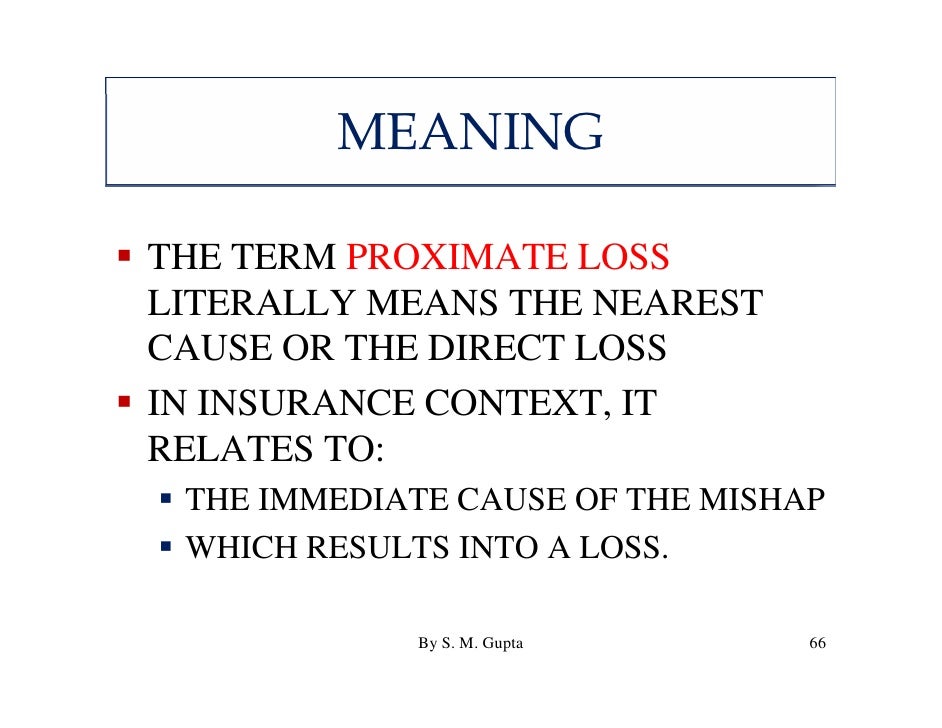 Source: slideshare.net
Source: slideshare.net
Proximate cause is an act, whether intentional or negligent, that is determined to have caused someone else’s damages, injury, or suffering. The doctrine is considered “friendly” to insureds because it sometimes creates coverage for a loss caused in part by an excluded peril, where that excluded cause of loss was. Proximate cause is an act, whether intentional or negligent, that is determined to have caused someone else’s damages, injury, or suffering. The definition of the “cause” was under test in many cases and was mentioned clearly in the marine insurance act 1906 in its section 55. The insurance policy may cover the proximate cause, but not the event that actually causes the damage, so the policy holder will not be reimbursed for his claim.
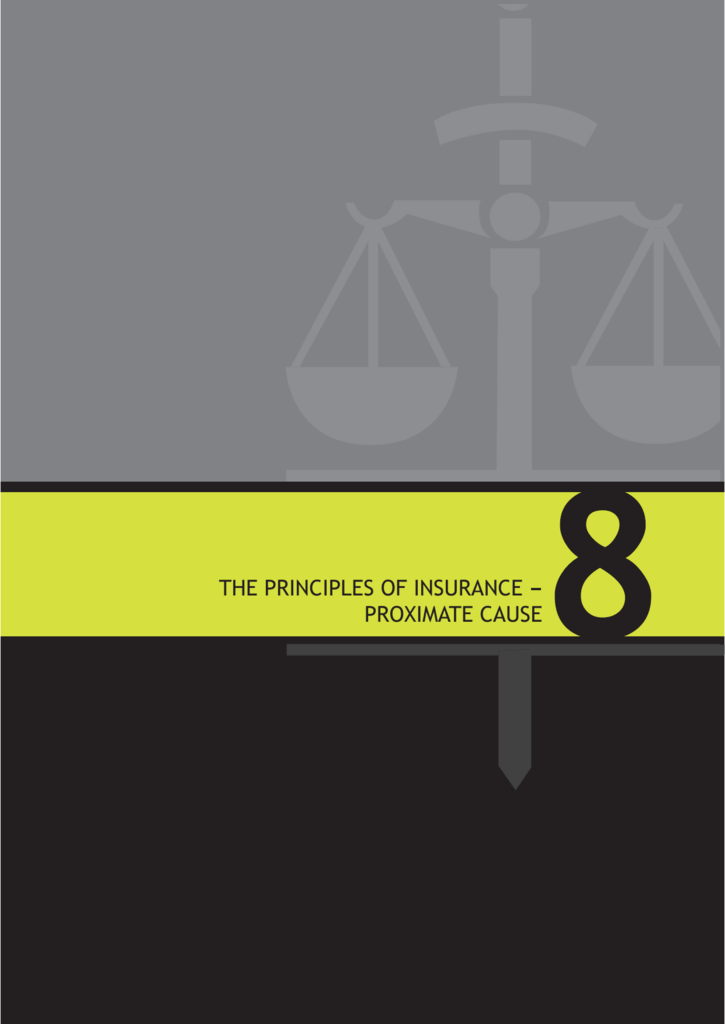 Source: studylib.net
Source: studylib.net
Proximate cause is an important insurance principle which may be the deciding factor whether a loss is covered or not, and hence determining whether the person holding the insurance policy (the insured) would be successful in his claim. Proximate cause is concerned with how the actual loss or damage happened to the insured party and whether it resulted from an insured peril. “no attempt has been made to work out any philosophical theory of cause and effect and. Proximate cause is a key principle of insurance and is concerned with how the loss or damage actually occurred. Therefore, it is a highly relevant principle in the insurance industry.
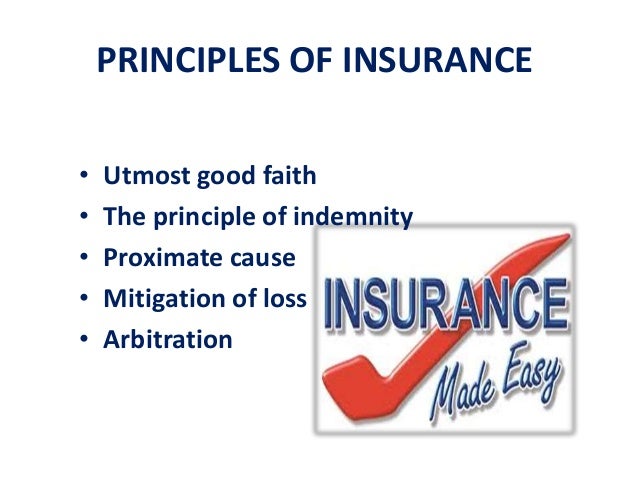 Source: es.slideshare.net
Source: es.slideshare.net
Proximate cause in marine insurance (iii) ordinary wear and tear, ordinary leakage and breakage inherent vice or nature of the subject matter insured, or any loss proximately caused by rates or vermin or any injury to machinery not proximately caused by maritime perils. It is an insured peril or not. The definition from pawsey v scottish union & national insurance company (1908) provides a clear understanding of this principal and in following this principal it is possible to see how a loss might. It deals with finding out what is the closest/first cause of the loss. A german appeal court determined, in a marine claim, that the proximate cause of a vessel’s grounding and ultimate sinking after its main engine cut out was bad weather rather than an engine problem.
 Source: slideshare.net
Source: slideshare.net
The definition from pawsey v scottish union & national insurance company (1908) provides a clear understanding of this principal and in following this principal it is possible to see how a loss might. Accordingly the loss was held to be proximately caused by peril of the sea, covered. Usually, the first and last events can be easily indentified but it is any intermediate events and causes, which happen, that may be more tricky to determine. A german appeal court determined, in a marine claim, that the proximate cause of a vessel’s grounding and ultimate sinking after its main engine cut out was bad weather rather than an engine problem. The proximate cause needs to be the first cause or the last, but it is defined as the cause that is most active in bringing forth a result.
 Source: slideshare.net
Source: slideshare.net
Proximate cause in marine insurance (iii) ordinary wear and tear, ordinary leakage and breakage inherent vice or nature of the subject matter insured, or any loss proximately caused by rates or vermin or any injury to machinery not proximately caused by maritime perils. Proximate cause is an act, whether intentional or negligent, that is determined to have caused someone else’s damages, injury, or suffering. Courts employ a set of proximate cause rules to resolve causation disputes when a property policy states that it covers or excludes losses. Proximate cause is a key principle of insurance and is concerned with how the loss or damage actually occurred. It is important that courts establish proximate cause in personal injury cases because not everyone nor everything that causes an injury can be held legally liable.
 Source: slideshare.net
Source: slideshare.net
Although, cyclone was nearer to sinking in time, nevertheless, torpedo was the active efficient cause, because the ship was so hard hit by torpedo that it would have definitely sunk. When the liability of the insurer is determined, the proximate cause is considered first. Proximate cause in marine insurance (iii) ordinary wear and tear, ordinary leakage and breakage inherent vice or nature of the subject matter insured, or any loss proximately caused by rates or vermin or any injury to machinery not proximately caused by maritime perils. The doctrine of proximate cause is one of the six principles of insurance. Norwich union fire insurance society, 1918).
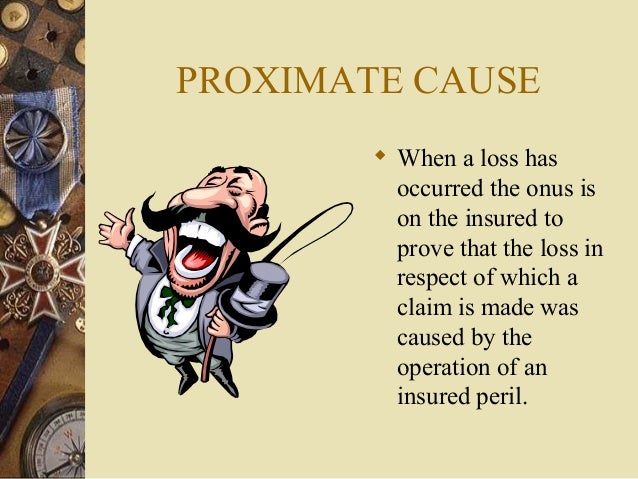 Source: socialgamenews.info
Source: socialgamenews.info
A german appeal court determined, in a marine claim, that the proximate cause of a vessel’s grounding and ultimate sinking after its main engine cut out was bad weather rather than an engine problem. Proximate cause in marine insurance (iii) ordinary wear and tear, ordinary leakage and breakage inherent vice or nature of the subject matter insured, or any loss proximately caused by rates or vermin or any injury to machinery not proximately caused by maritime perils. Proximate cause refers to the first event, or first peril, in a series of events that cause damage in an insurance claim. Norwich union fire insurance society, 1918). Proximate cause refers to a direct cause of loss, without which the loss would not occur;
 Source: driverlayer.com
Source: driverlayer.com
Dari 2 (dua) pengertian proximate cause diatas maka jelas bahwa prinsip ini digunakan untuk mengukur atau. Proximate cause is an act, whether intentional or negligent, that is determined to have caused someone else’s damages, injury, or suffering. The view of lord blackburn that in such cases, once there is a clear view of the facts, it is best to keep away from such philosophical mazes: The proximate cause needs to be the first cause or the last, but it is defined as the cause that is most active in bringing forth a result. Proximate cause refers to a direct cause of loss, without which the loss would not occur;
This site is an open community for users to submit their favorite wallpapers on the internet, all images or pictures in this website are for personal wallpaper use only, it is stricly prohibited to use this wallpaper for commercial purposes, if you are the author and find this image is shared without your permission, please kindly raise a DMCA report to Us.
If you find this site value, please support us by sharing this posts to your own social media accounts like Facebook, Instagram and so on or you can also bookmark this blog page with the title proximate cause in insurance by using Ctrl + D for devices a laptop with a Windows operating system or Command + D for laptops with an Apple operating system. If you use a smartphone, you can also use the drawer menu of the browser you are using. Whether it’s a Windows, Mac, iOS or Android operating system, you will still be able to bookmark this website.

Category
Related By Category
- Vicarious liability insurance definition Idea
- Staples insurance information
- Youi car insurance claim Idea
- T mobile insurance for iphone x information
- Shelter insurance fayetteville ar information
- Roger smith insurance Idea
- Scotia insurance eastern caribbean limited Idea
- Toronto condo insurance average rates information
- Sell life insurance policy calculator Idea
- Velox insurance hiram information